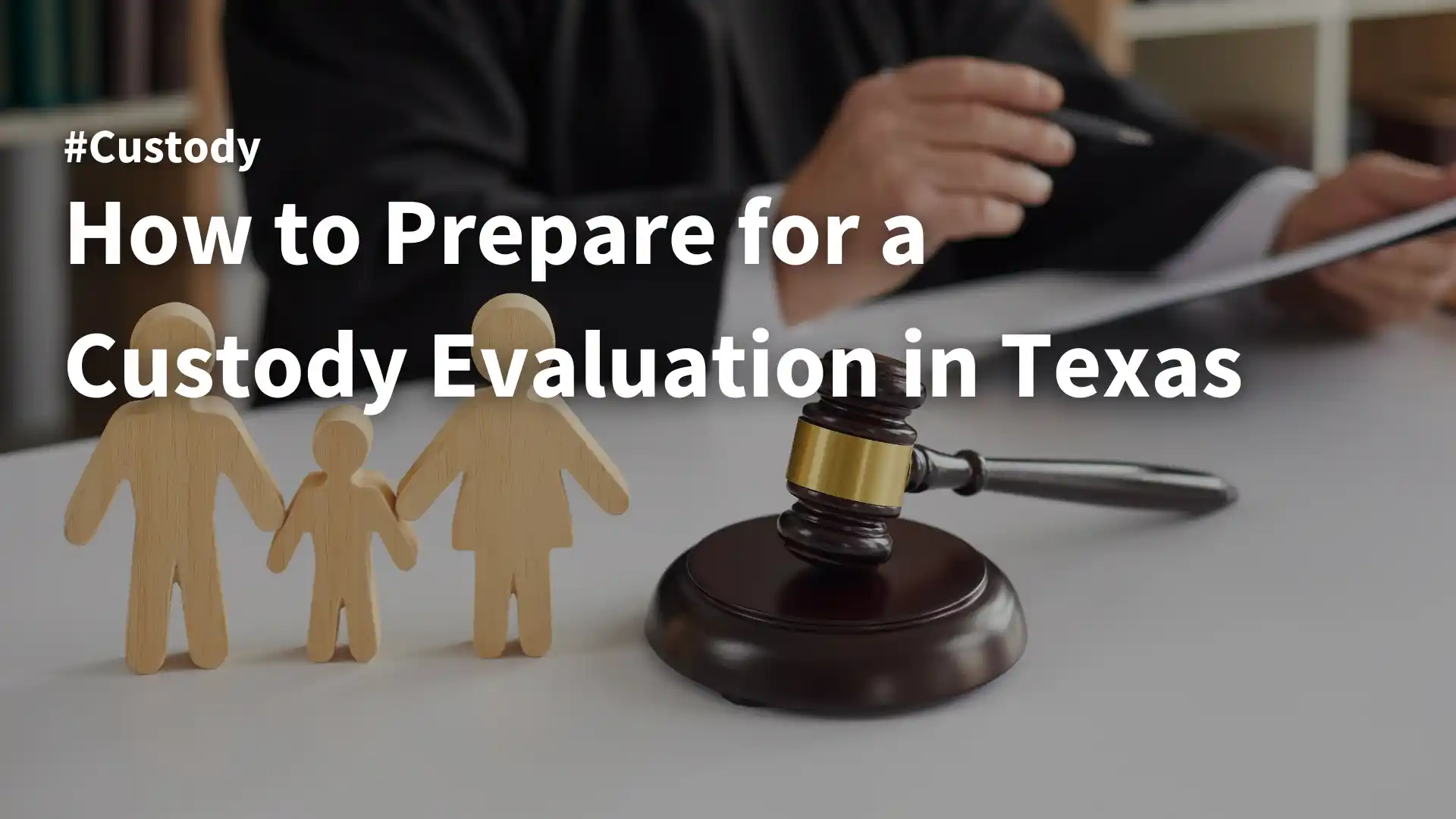
When deciding which parent should have legal custody, Texas courts are supposed to choose in the child’s best interests. To that end, the state might perform a custody evaluation to determine each parent’s living situation and ability to care for the child. If you are currently in a custody dispute with your ex, you must understand how custody evaluations work and how they affect custody decisions. Talk to a family law attorney if you have specific questions and concerns about preparing for a custody evaluation in Texas. Getting the proper guidance can make all the difference during this critical process.
What Is a Custody Evaluation?
A custody evaluation is a type of investigation that Texas courts perform to determine whether a parent is suitable for the custody of a child or modifications. The court will appoint an evaluator to investigate and gather evidence regarding a parent’s home life and ability to care for the child. The evaluator is a qualified, neutral third party—typically a mental health professional or social worker—who provides an objective assessment. Understanding strategic approaches to custody evaluation can help you navigate the process more confidently and effectively.
Custody evaluations are not mandatory in Texas. Because they can be invasive, courts typically only do them when they have questions about custodial suitability. One parent can request a custodial evaluation when they have concerns over issues such as:
- Domestic violence
- Drug abuse
- Mental illness in the parent
- The child’s special needs
- Moving out of state with the child
- Objectionable parenting
Please read more about emergency custody here: How to Get an Emergency Custody Order Tips
What Custody Evaluations Look For
Custody evaluators use a fine-tooth comb to assess a parent’s home life and ability to care for the child. They assess home environment, parenting styles, communication, and the parents’ economic situation. Specific tasks a custody evaluator might perform include:
- Observing parental interactions
- Reviewing medical, educational, and financial documentation
- Performing background checks
- Assessing the mental health of parents and the child
- Conducting interviews with parents and children
- Preparing reports
- Testifying at hearings
Essentially, custody evaluators are looking at whether the parent is physically and emotionally capable of caring for their child and meeting their needs.
Child’s Best Interest Standard
Courts are supposed to make custody decisions according to the child’s best interests. In Holley v Adams, the Texas Supreme Court named several factors that courts should consider when making custody decisions. These factors are sometimes called “Holley factors” and include:
- The child’s desires
- The child’s emotional and physical needs
- The presence of physical or emotional danger
- Each parent’s parental abilities
- Stability of home environment
- The parent’s acts or omissions
Courts use custodial evaluations to gather evidence concerning these factors. However, these factors are not exhaustive; courts can consider others outside them.
Potential Interview Questions During a Custody Evaluation
Evaluators usually conduct interviews to assess the relationship quality between parents and children. They may ask the child about their preferences and thoughts about their relationship with their parents. These interviews often figure centrally into evaluator recommendations. Evaluator recommendations are not binding, but they are an essential piece of evidence courts will consider when making custody decisions.
During an interview, the custody evaluator will ask several questions about your relationship with your child. Typical questions might include:
- How would you describe your relationship with your child?
- What are your child’s strengths and weaknesses?
- Do you have any emotional or behavioral concerns with your child?
- Do you have any mental health or substance abuse problems?
- What is your approach to parenting and discipline?
- How involved are you in your child’s daily life, school, and other activities?
- Who is part of your child’s social network?
- Do you have concerns about the relationship between you and your child?
- Do you believe the other parent can provide a suitable environment for your child?
Interviews are tailored to the circumstances and may include questions relevant to your case, such as substance abuse. The point of the interview is so the evaluator can get as much information as possible concerning custody placement and the child’s best interest.
How to Prepare for a Custody Evaluation
The findings of a custody evaluation can have a massive impact on the outcome of a custody dispute. As such, it’s essential to put your best foot forward and make a good impression on the evaluator. Some general pointers include:
- Be on time for the evaluation and interviews
- Dress your best
- Have all relevant documents organized (e.g., school reports, financial documents, medical records, etc.)
- Make sure your home is clean and free of dangerous objects
When interacting with the evaluator:
- Answer questions honestly, and don’t exaggerate or downplay
- Stay calm, and don’t get defensive or aggressive
- Be willing to discuss criticisms of your parenting and conduct
- Don’t speak badly about the other parent, and stay even-handed when describing their behavior
- Be courteous and polite (e.g., say thank you, don’t swear, etc.)
Talk to a family law attorney if you are unsure how to prepare for evaluation. They can help you gather the requisite documentation and walk you through the evaluation process. They can also help you practice interview questions and advise which responses to avoid.
Tips for Talking to Your Child About the Evaluation
It’s understandable for your child to be frightened and intimidated about the evaluation. It’s important to emphasize that the evaluator wants to learn more about your family and determine what’s best. You should not instruct your child to answer questions a certain way or to speak badly about the other parent. Instead, tell them to answer questions honestly and straightforwardly.
Contact a Texas Family Law Attorney Today
If you are in a custody dispute or seeking to modify or enforce a custody order, Smith & Bledsoe Family Law is here to assist. Our Texas child custody attorneys can provide legal guidance and represent you during custody proceedings. Our team is here to help you understand your rights and take the first step toward securing the necessary benefits. We have extensive experience mediating custody disputes and can work towards a solution that’s in the best interest of your child and family.
Contact our offices online or call (512) 277-3166 us today for a case consultation with a family law attorney in Texas.
Related Post
How to Grant Full Custody to the Other Parent
How Does Joint Custody Work in Austin, Texas?
Interstate Custody Battles: How UCCJEA Determines Jurisdiction
